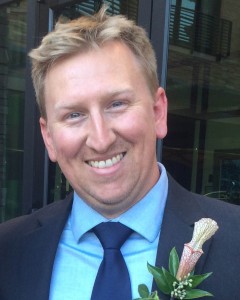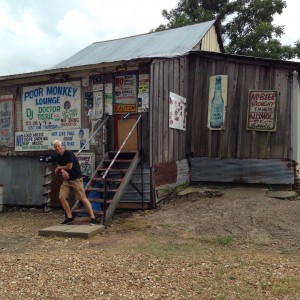 Years ago, in a jaded moment of teaching frustration, I purchased a book entitled The Dumbest Generation: How the Digital Age Stupefies Young Americans and Jeopardizes Our Future (Or, Don’t Trust Anyone Under 30). I know, the subheading alone should’ve told me to save my money. The argument is pretty self-evident, but the details of the book—at the time—spoke to some of the frustrations I was feeling with my students.
Years ago, in a jaded moment of teaching frustration, I purchased a book entitled The Dumbest Generation: How the Digital Age Stupefies Young Americans and Jeopardizes Our Future (Or, Don’t Trust Anyone Under 30). I know, the subheading alone should’ve told me to save my money. The argument is pretty self-evident, but the details of the book—at the time—spoke to some of the frustrations I was feeling with my students.
At one point the author, Mark Bauerlein, shares an anecdote wherein some ex-student doesn’t show sufficient love for The Great Gatsby. Bauerlein’s diagnosis, then, goes like this: modern teens are possessed of a “brazen disregard for books and reading.”
“Yes!” I thought to myself then. “Finally, someone has given voice to the frustration of all of us English teachers!”
He is perhaps not wrong in that observation—save for the presumption that such an attitude is somehow unique to modern students. As English teachers, we fancy ourselves to be keepers of the culture, in addition to instructors of reading and writing. We imagine that the empathetic, essentially human part of society will wither and fall from the rose, one heartbreaking petal at a time, if we don’t help teenagers learn to appreciate Gatsby and Hemingway and Fahrenheit and Shakespeare—and Shakespeare and then poetry and then a little more Shakespeare. In other words, we don’t just want them to love reading; we want them to love reading the right things.
And we aren’t wrong. Cultural literacy is an important thing and kids get precious little of it. But pushing the classic canon and teaching kids to become more culturally enriched are not necessarily symbiotic. In fact, I want to propose that they are often antithetical (an argument which is not mine so much as Kelly Gallagher’s, in the indispensable Readicide).
Misguided Values
Students need to learn to love reading and the idea of literature before they can be expected to love literature independently.
 In that sense, the focus of English classrooms has been off for a long time. We build our units around a core canonical text, and make everything else more or less in service of that text. Is our concern whether kids learn to love reading, or do we press them to love this book at this moment, because it’s what we believe people who love reading should value?
In that sense, the focus of English classrooms has been off for a long time. We build our units around a core canonical text, and make everything else more or less in service of that text. Is our concern whether kids learn to love reading, or do we press them to love this book at this moment, because it’s what we believe people who love reading should value?
I can feel some of you dusting off your old “In Defense of the Literary Canon” speeches for me, so I’ll use your ally from earlier. Bauerlein, in Dumbest Generation, offers another “measure” of proof that today’s youth are culturally bankrupt. He cites the fact that almost none of them has ever attended a jazz concert. Almost none! Imagine that!
Maybe some of you attend jazz performances regularly. They aren’t my cup of tea—nor are live stage plays, to be honest—and yet I don’t consider myself culturally bankrupt. But according to Bauerlein, if you don’t go to jazz concerts at least a couple times a year, you’re an agent of the cultural apocalypse.
But any reasonable person would agree that a distaste for jazz does not determine or define cultural literacy. We know this in our hearts, and yet we often refuse to allow the same benefit of the doubt to students.
On the contrary, when we come across something like the infamous TED Talk about Shakespeare and hip-hop, we use it to push kids even harder to appreciate The Canon: “See! If these rappers sound like Shakespeare, how can you not like the famous bard’s rhymed couplets?”
How often do we stop to consider the implicit corollary? If they’re close enough to confuse, then either Shakespeare isn’t so unique, or a few voices in hip hop are.
Next Steps
Some kids will love the classics from the moment they get their hands on them. And many of them will learn to love them in the classroom—because of you! But we do a disservice to our students when we imply that these are the only books that matter.
We don’t generally have the freedom to rewrite our curriculum. But a few minutes of students’-choice reading every day, or an assignment that asks students to select something for the New Canon, can have a huge impact on how your students exit your classroom and enter into the world of popular culture. To deny them the breadth of cultural richness is to send them into the world with their eyes wide shut.
In future posts I’ll share the joys of letting students read whatever they please. In the meantime, go read a good book by an author you’ve never heard of. See if it doesn’t turn out to have its own universal truths.

Michael Ziegler is a Content Area Leader and teacher at Novi High School. This is his 15th year in the classroom. He teaches 11th Grade English and IB Theory of Knowledge. He also coaches JV Girls Soccer and has spent time as a Creative Writing Club sponsor, Poetry Slam team coach, AdvancEd Chair, and Boys JV Soccer Coach. He did his undergraduate work at the University of Michigan, majoring in English, and earned his Masters in Administration from Michigan State University.

 A few years back I recognized that I was getting stale—not bad, just not good—and that I was becoming calcified in my self-assurance. I don’t remember an exact moment when I noticed it. In any case, I didn’t want to become the teacher who boasts 20 years of experience, when he really means two years of experience repeated 10 times. I looked around until I found a seminar given by Columbia University and
A few years back I recognized that I was getting stale—not bad, just not good—and that I was becoming calcified in my self-assurance. I don’t remember an exact moment when I noticed it. In any case, I didn’t want to become the teacher who boasts 20 years of experience, when he really means two years of experience repeated 10 times. I looked around until I found a seminar given by Columbia University and  This year found me at
This year found me at 
 Rick Kreinbring teaches English at Avondale High School in Auburn Hills, Michigan. His current assignments include teaching AP Language and Composition and AP Literature and Composition. He is a member of a
Rick Kreinbring teaches English at Avondale High School in Auburn Hills, Michigan. His current assignments include teaching AP Language and Composition and AP Literature and Composition. He is a member of a